Facebook Destroys Everything: Part 1
In Southeast Asia in the early 2010s, I watched as Mark Zuckerberg's creation began to destroy Myanmar. Here's why I'm never using Threads.
I want to tell you a real bummer of a story about Facebook.
The kind of no-fun, downer tale that Alex Mosseri, the head of Threads, Meta’s new social media service, said he doesn’t want his website to support.
I arrived in Myanmar for the first time in November 2012, the same week that the country’s very first ATMs that worked with international credit cards went online. The humble money machine’s arrival was a big deal, one of the clearest signs yet that the oppressive, isolationist military junta that had run the country from 1962 all the way up to 2011 was truly gone. An indicator that Myanmar was entering a new, much more outwardly-focused, era.
With the fall of the junta came an even bigger deal: the arrival of the relatively free Internet in Myanmar, liberated from the ultra-restrictive controls that the old regime had placed on its citizen’s access to international information. Before, the few bloggers that had managed to skirt the controls and write online, like poet and activist Nay Phone Latt, were met with prison sentences, fines, and violence.
Now, Nay Phone Latt was free, Internet cafes were doing a booming business, and there was even talk of the imminent arrival of publicly-available mobile data. And most exciting of all, people across Myanmar were setting up their very first Facebook accounts.
I’d come to Myanmar to write about the rise of the Internet, as part of my then-regular beat on tech in Southeast Asia - a subject I’d grown fascinated by ever since I started my first reporting job out of college at the Cambodia Daily in Phnom Penh. It was an opportune time for that kind of thing.
The Arab Spring, and the way in which its fearless millennial-aged leaders had organized on social media platforms that their authoritarian overlords understood poorly, had ushered in a wave of global optimism about how Facebook and Twitter could, just perhaps, usher in a new era of democracy and empathetic communication, build a perfect framework for a Marketplace of Ideas (and do it all while making a shit-ton of money).
According to some pundits, Mark Zuckerberg might just, in his weird nerd way, heal the world.
While I was more skeptical than most about if the ascendance of social media was a good thing or not, it was very clear to me that it was important - and so I’d begun my reporting career looking at what Cambodians were doing online, how they were using Facebook to politically organize against their own repressive government, to meet one another, to reach out to a broader technological world. I’d connected with a Myanmar NGO dedicated to digital inclusion, and through them, I got a chance to meet and interview a number of brilliant and extremely online Burmese people, all of them brimming with long-suppressed, almost giddy, optimism about their country’s technological future.
It was hard for me not to share their enthusiasm, their massive relief at finally getting out from under the jackboot of a military regime that had tried to lock them away from the rest of their world for as long as they could remember. I came away from speaking with them with a warm, happy feeling about how online communication maybe, just maybe, really did have the power to unfuck the world.
I’d also come to Myanmar because of Barack Obama.
The US had sent then-secretary of State Hillary Clinton to Myanmar on a diplomatic visit in late 2011, restored full diplomatic relations with Myanmar in January 2012, and had begun to roll back long-standing economic sanctions. This extended process of thawing the ice cube was set to culminate with the first-ever trip to Myanmar by a US President, who would meet with both President Thein Sein and the recently-freed and globally iconic opposition leader Aung San Suu Kyi, to congratulate them on their achievements and to implore them to keep up the good work.
On the day of the President’s arrival, I walked towards the university auditorium where he was set to speak through the streets of Yangon, which were lined with excited and intensely curious Burmese people, many of whom were wearing t-shirts with Obama’s face on them, who were waving little paper American flags (sold by enterprising street vendors).
We all watched the massive US motorcade roll by, the President’s enormous black monolith of a car smack-dab in the center of it, and people cheered and shouted and waved, and shook my hand as the nearest American who could be congratulated.
Once there, I managed to talk my way into the official White House press pool, and I was able to join the great scrum of jostling foreign correspondents on the balcony of the auditorium as Obama, Clinton, and Suu Kyi embraced each other and spoke to the audience about the rise of a new relationship, a new era. For onlookers, it was easy to get seduced by how picture-perfect it all was, to believe that Myanmar was on the up-and-up, that both the government and its people were headed towards a freer, wealthier future.
But it was not that simple. Nothing ever is.
Prior to my first visit, in June 2012, people form the Rakhine Buddhist ethnic group and Muslims from the long-persecuted Rohingya ethnic minority, up in Myanmar’s north, had begun fighting with one another, in the latest outburst of tensions that had been flaring up on and off for generations. Myanmar state security forces headed to the scene at President Thein Sein’s request and promptly started making things even worse - rounding up Rohingya (long denied citizenship by the Burmese state) en masse, raiding their villages, raping them, killing them.
After a few months of relative peace, the violence escalated once again in October, right before both I and the President arrived in Myanmar. By then, at least 80 were dead, and it was estimated that somewhere in the ballpark of 100,000 people, almost all Rohingya, had been displaced, burned out of their homes and villages, forced into squalid and desperate refugee camps.
While United Nations experts raised the alarm in Geneva and Human Rights Watch released satellite imagery showing hundreds of burned buildings in Rohingya villages, most global onlookers seemed to regard the violence and the fire as one of those things: regrettable, but not unexpected, and certainly not so awful that it was worth torching newly-established relations ever.
Obama explicitly mentioned the Rohingya situation while speaking at the University of Yangon, calling upon Myanmar to “stop incitement and to stop violence.” For his part, President Thein Sein - who’d said just a few short months ago that his country didn’t want the Rohingya, and that it’d be best if they were resettled in any country willing to take them - publicly agreed to eleven US-defined human rights commitments, from “taking decisive action in Rakhine” to permitting aid workers to enter certain conflict-wracked areas. Messy. Imperfect. But, from the perspective of the US, good enough for now.
After I got back from that first trip to Yangon, I kept following the Rohingya clashes in Myanmar on the news, watching with growing trepidation as the situation grew ever more terrible, as the deaths piled up, and as ever more Muslims were forced to flee into newly-established and massively growing refugee camps over the border in Bangladesh. I also watched as this growing darkness was reflected on the Internet - indeed, intensified by it, the online world and the offline world becoming ever more enmeshed, interlocked, impossible to tell apart.
As far as many newly online people around the world were concerned in the early 2010s, Facebook was the Internet: the single, centralized portal through which they interacted with the rest of the planet, where everything online that bore the slightest relevance to their lives took place. They were part of a millions-strong captive audience, and Facebook had realized that if they played their cards right, if they hurried the process along, they could keep all these people safely locked up in their own custom-designed, eminently profitable enclosures. And they could mask their ambitions by claiming that all they really wanted to do was help people gain economically-vital access to the Internet.
I’d already been seeing the darkness in Cambodia, where reporters had started to notice an alarming up-tick in violent, intense rhetoric against the Vietnamese minority in Khmer Facebook groups in the run-up to the 2013 elections, as the CNRP opposition party accused them of secretly wanting to take over Cambodia again. And now I was hearing about how Facebook was even worse in Myanmar, as more and more of the nation got online for the very first time: how Buddhist firebrand monks were using the platform to whip newly-online people into paroxysms of anger about the prospect of Muslims taking over their land. Outnumbering them.
But still, reasonable people had reasonable questions about the causality of it all. Was there a truly direct connection between the violence against Rohingyas and the nastiness on Facebook? Were enough people in Myanmar even online that it’d actually make a difference? Was the way people used Mark Zuckerberg’s platform really, ethically speaking, Mark Zuckerberg’s fault?
I spent the spring of 2013 mulling over these questions, rooting around in the nastier recesses of politically-minded Facebook groups, reading through the then-nascent literature on how social media could, just perhaps, drive social progress in ways that didn’t help bring about yet more Arab Springs and bust open secret torture prisons.
In June, I got the chance to go back to Yangon. I’d be writing about the nation’s first-ever Internet Freedom Forum, a gathering dedicated to helping Myanmar’s people take advantage of the new, liberated Internet. Nay Phone Latt spoke at the conference, and so did a number of the other brilliant young Burmese tech enthusiasts I’d met before. The mood was still buoyantly optimistic as we circulated from one Post-It note-filled brainstorming session to the next, as we drank tea, discussed Internet freedom regulations and online privacy.
And yet, I could detect a slight edge in the air, a certain trepidation that had grown, mutated into new forms, in the few months since I’d been away. People knew that the country’s fate still remained very much in doubt, and they knew the turn to democracy could evaporate just as quickly as it had come about. At night, I’d walk back to my hotel room through the silent, dark streets of Yangon - a city that was still figuring out what it wanted to do about night life - and sometimes stray dogs would tail me home, lean, rangy beasts with a worrisome, predatory alertness, much more so than I remembered seeing in the local curs in India and in Cambodia.

During the conference, we talked about how hateful talk about the Rohingya was starting to pop up on Facebook, about how it was casting an ominous shadow over the good things about helping more people get online. Hopefully, it’d stay relatively isolated, and people could be taught to use and to read social media in more critical, careful ways. Hopefully, the whole thing would represent a nasty but not-unexpected blip on the road towards the Internet helping Myanmar build a better, freer society.
Hopefully.
And then, near the end of my visit, I had an honest-to-god Thomas Friedman moment. In a taxi cab.
The driver was a charming young Burmese man who spoke good English, and we chatted about the usual things for a bit: the weather (sticky), how I liked Yangon (quite a bit, hungry dogs aside), and my opinion on Burmese food (I’m a fan).
Then he asked me what I was in town for, and I told him that I’d come to write about the Internet. “Oh, yes, I’ve got a Facebook account now,” he said, with great enthusiasm. “It is very interesting. Learning a lot. I didn’t know about all the bad things the Bengalis had been doing.”
“Bad things?” I asked, though I knew what he was going to say next.
“Killing Buddhists, stealing their land. There’s pictures on Facebook. Everyone knows they’re terrorists,” he replied.
“Oh, fuck,” I thought.
I was going to write “you know what happened next.” But as I watched social media discourse about the launch of Threads this summer, I realized that a lot of you - good, smart, reasonably well-informed people - don’t know what happened in Myanmar after 2013. Or the role Facebook played.
So, here’s a brief summary.
Internet access ripped across Myanmar after 2013, and so did smartphones, which often came conveniently pre-loaded with the Facebook app. In 2016, Facebook even partnered with Myanmar’s government to launch two products that let people use basic versions of Facebook without having to pay for data: millions of people signed on, eager to talk to their friends and read the news for free on a platform that most assumed was perfectly trustworthy. They also used Facebook to talk about the Rohingya - and there was a lot to talk about, as the violence kept getting worse, as over a hundred thousand Rohingya were pushed into refugee camps.
In August 2017, a Rohingya armed group attacked military targets and killed civilians in Rakhine state: Myanmar’s security forces responded with total warfare. Soldiers massacred thousands of unarmed people, raped women, and burned down hundreds of villages. Children were incinerated inside their own homes.
Over 730,000 Rohingya fled across the border into Bangladesh, forced to take up residence in overcrowded refugee camps where they still wait in limbo to this day, subject to the often unsympathetic, cruel whims of the Bangladeshi government. Hundreds of thousands more remained trapped unhappily in Myanmar, existing without rights and as a hated, hunted underclass. Experts started to apply terms like “ethnic cleansing” and “genocide” to the Rohingya killings, and few bothered to argue.
The few who did included Aung Sang Suu Kyi, the erstwhile human rights hero that I’d seen Obama shake hands with just a few years before. After becoming the de facto head of government in 2015, Suu Kyi started to vocally defend the military’s actions against people she deemed to be Muslim terrorists. She was still grumbling about unjust disinformation when she was brought before the Hague in 2019 to defend Myanmar against charges of genocide, praising the same military that kept her under house arrest for over a decade.
Yet Suu Kyi’s willingness to defend mass murder wasn’t enough to keep her in power.
In February 2021, the military decided that this political liberalization business had gone too far: it reverted to tradition, launching a coup against the government, invalidating the 2020 election, and arresting Aung San Suu Kyi and other officials on highly-suspect allegations of fraud. The military swiftly locked down Internet access, restricted aid worker freedom of movement, and viciously attacked protesters.
In response, both existing ethnic militias and newly formed ones fought just as ferociously back, creating a brutal civil war that’s still happening today. Nor have things improved for the Rohingya, who still languish in dangerous camps, who are still deprived of rights by governments in both Myanmar and in Bangladesh. Who still drown by the hundreds in overladen boats headed for places where they might, just might, find dignified work.
As this last dismal decade in Myanmar unfolded, one thing has become exceedingly clear: Facebook, in its rush to massively profit from getting an entire country on the Internet in just a few short years, played a key role in the country’s slide into hell. During that blood-soaked period from 2016 to 2018, website’s attention-hunting algorithms pumped vast amounts of ferocious anti-Rohingya content into the feeds of millions of Myanmar Facebook users, and the site failed over and over to counter dangerous hate speech, ignoring pleas from local activists, including some people I knew.

Despite Facebook’s claims that it had cracked down on hate speech, in 2020, researchers found Facebook was still promoting anti-Rohingya hate videos from Ashin Wirathu, the extremist monk they’d supposedly banned years before. (Just now, it took me approximately 5 seconds to find an anti-Muslim 2020 interview with Ashin Wirathu, with English subtitles, still up and visible on a Facebook page run by Indian Hindu nationalists - and I wasn’t even asked to log in).
When the military launched its 2021 coup, Facebook promised, like always, that it would take action to reduce the reach of pro-junta posts. But researchers found that the constantly-churning algorithm continued to promote posts advocating for violence anyway.
As I write this, Facebook remains wildly popular in Myanmar today, persisting despite the military’s occasional, doomed attempts to ban it in retribution for attempting to ban them - measures which people relatively easily get around with VPNs. The site’s filters still consistently fail to catch ads promoting virulent-anti Rohingya hate-speech, and activists are regularly imprisoned by the junta for their anti-government Facebook posts. In Myanmar, as in much of the rest of the world, Facebook has accumulated a power center of its own, wound itself around the very idea of modern, connected life itself.
Nor can Zuckerberg claim it was a mistake, a misunderstanding. Throughout this entire dark period, Facebook knew what it was doing.
In 2018, an independent report commissioned by the company itself concluded that the website had helped fuel genocide, and the company agreed with its findings, said it was hiring more Burmese speaking moderators, that it was “looking into” creating a human rights policy. (It only got around to actually doing this in 2021).
The company’s statements on the matter remained bloodless, at a distance: the closest show of actual human emotion came from Adam Mosseri, the current Threads chief and Facebook’s then VP of product management. “Connecting the world isn’t always going to be a good thing,” he conceded on a Slate podcast. “We’re trying to take the issue seriously, but we lose some sleep over this.”
Mark Zuckerberg himself acknowledged, in a 2018 interview with Ezra Klein, that his company’s penchant for encouraging genocide was “a real issue” that “we’re paying a lot of attention to.”It was familiar Zuckerberg line. A chunk of bloody meat tossed to the press and to the public, a bribe that could get away with being bereft of actual content, actual human sentiment.
In another, even more illuminating, 2018 interview with Recode, Zuckerberg said that he felt "fundamentally uncomfortable sitting here in California at an office, making content policy decisions for people around the world."
To drive the point home, he added this: “A lot of the most sensitive issues that we faced today are conflicts between our real values, right? Freedom of speech and hate speech and offensive content…. Where is the line, right? And the reality is that different people are drawn to different places, we serve people in a lot of countries around the world, and a lot of different opinions on that."
In these words, Zuckerberg expressed his most fundamental perspective, the belief system that has shielded him with remarkable effectiveness from the public anger that he deserves. (He would go on to use almost the exact same phrasing to defend his soft-gloved treatment of Donald Trump in 2020 and 2021).
It’s phrasing that acknowledges the existence of ethical issues with tech, while deftly absolving the person who created these issues in the first place from responsibility for cleaning things up. It’s a message that Facebook is inevitable, inescapable, that humanity will simply have to adapt to its presence.
And it’s a message that allows Zuck to publicly pretend that he’s simply too humble to feel OK with making decisions for other people, even as he works hard, right out in the open, to herd an entire species into his immensely profitable, walled-garden of a website.
As I write this in 2023, Facebook, or Meta, if we’re going to politely go along with another one of the company’s great squid-ink moves, claims they’re still Working on The Myanmar Problem. I’m sure company spokespeople would agree, if I asked them, that they’re Very Apologetic and that they absolutely still Need to Do Better.
That’s what Meta always says, after every single damning revelation, after every single time they’re entirely and unequivocally caught doing something wildly immoral.
Zuckerberg and his company have learned this is really all they need to do, that there is little appetite among the truly powerful for holding them accountable. That the lawsuits filed against them by groups like the Rohingya, like the Ethiopians impacted by the war in Tigray, will almost inevitably fail.
But, no, I don’t blame anyone for not knowing about all this, about what Facebook helped enable in Myanmar, about what it did in Ethiopia, and in Kenya, and in India and South Sudan and in the United States, and a lot of other places besides.
After all, there are way fewer full-time journalists writing about these things than there used to be. Including me.
Enter the Pivot to Video.
Read Part Two of this piece here:
Facebook Destroys Everything: Part 2
It was April 2016, and Mark Zuckerberg, clad in his usual incredibly expensive cotton t-shirt, told the world that his website - and thus, the entire Internet - was headed to a video-filled future, where live broadcasts and snappy, “snackable” content would push out the old, boring world of words.
Read Part Three of this piece here:
Facebook Destroys Everything: Part 3
When Covid arrived, I was, like most reasonable people, terrified of the virus. I was also absolutely terrified by the glittering, data-hoovering opportunity that a global pandemic represented for the always-hungry likes of Facebook and Google. My fears about how Big Tech might take advantage of this planet-sized tragedy only solidified after it came ou…

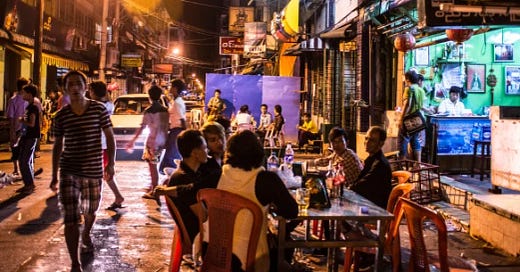



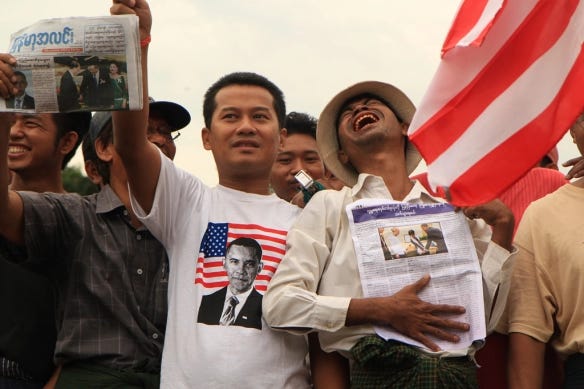
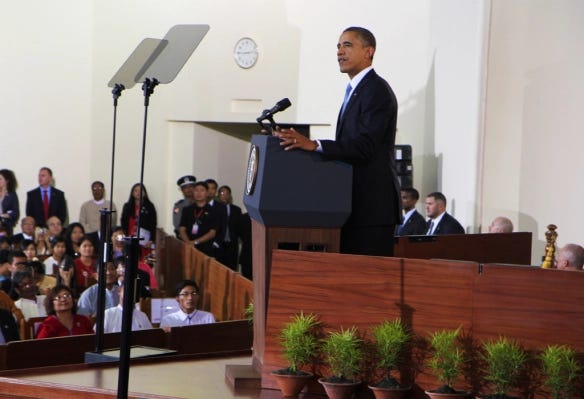
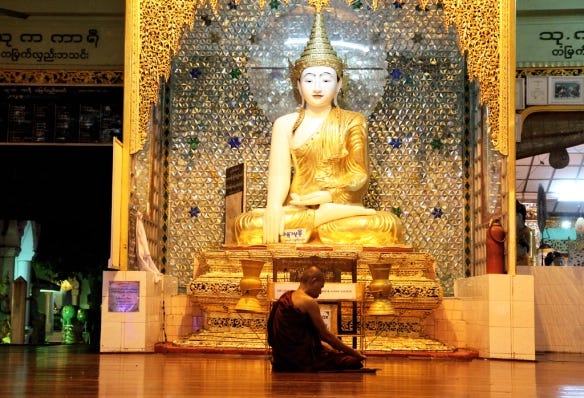
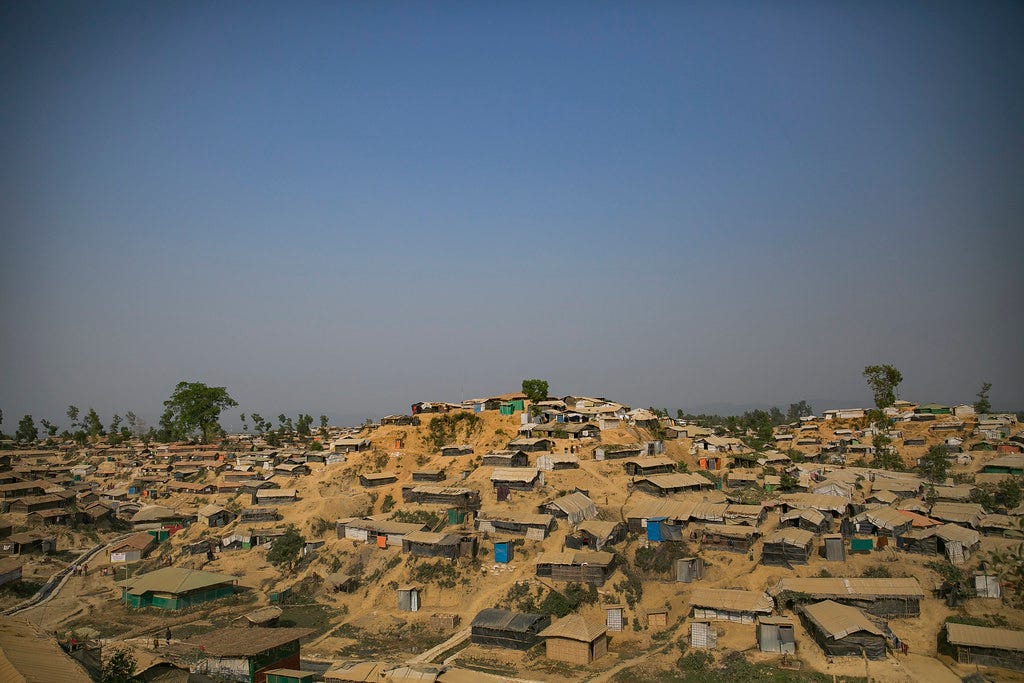
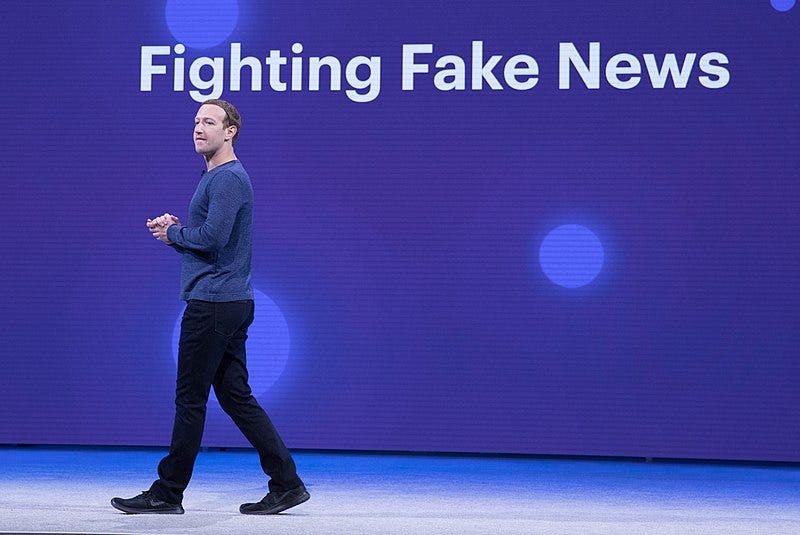
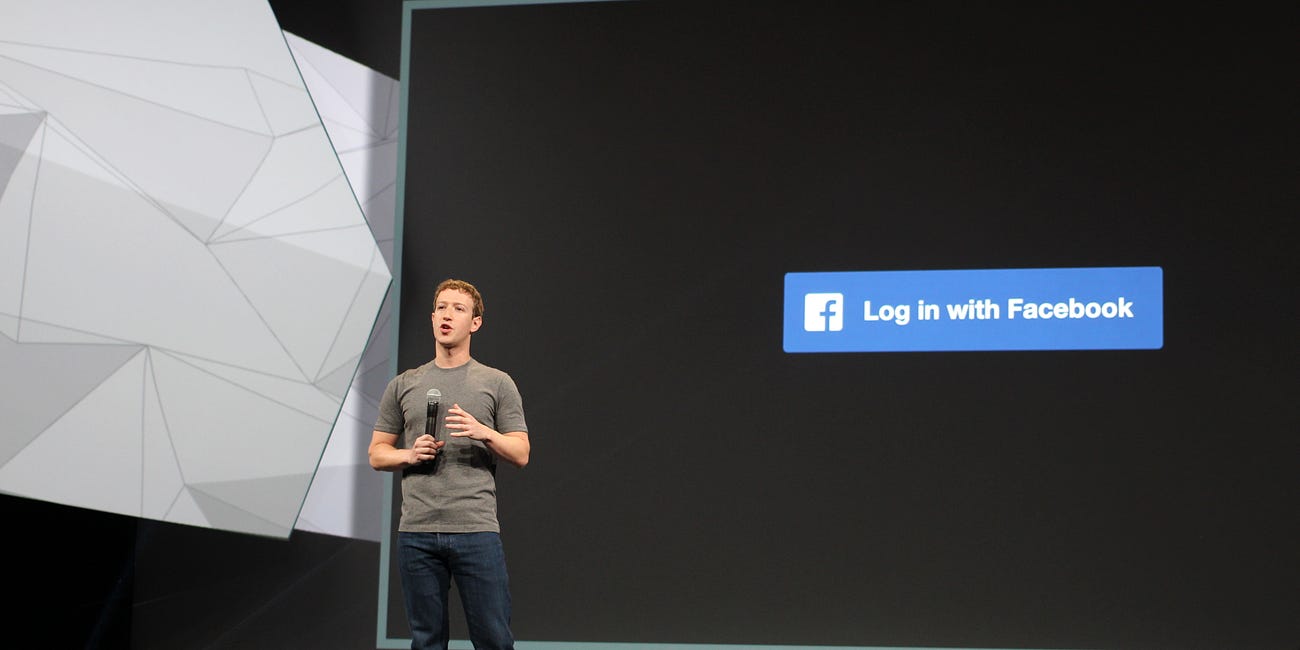

I posted this one on Facebook. Thanks Faineg
Excellent piece 🤌